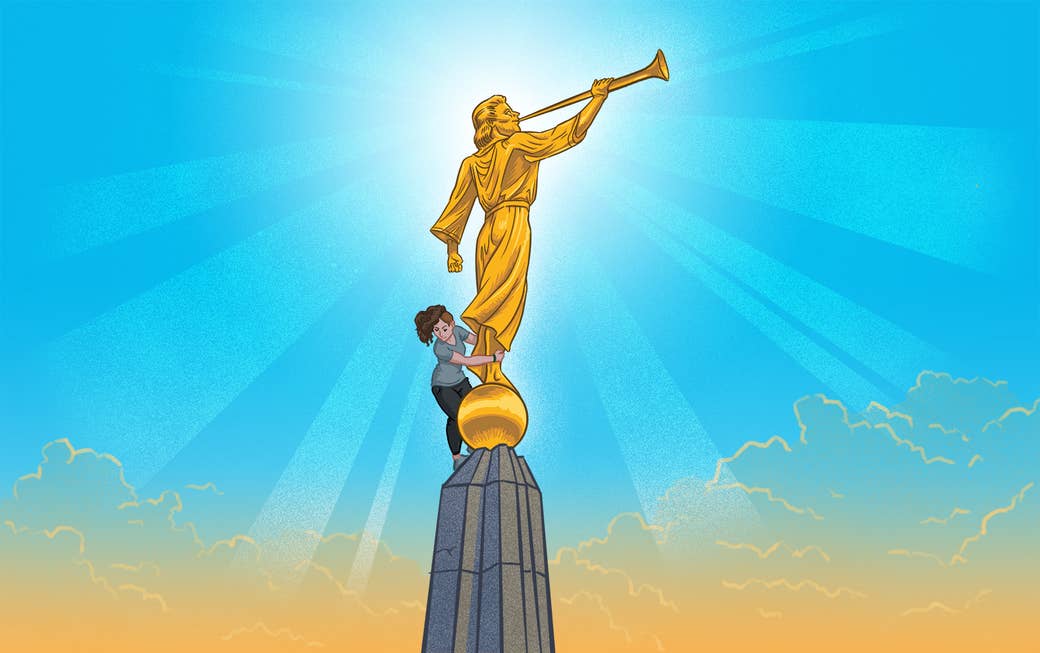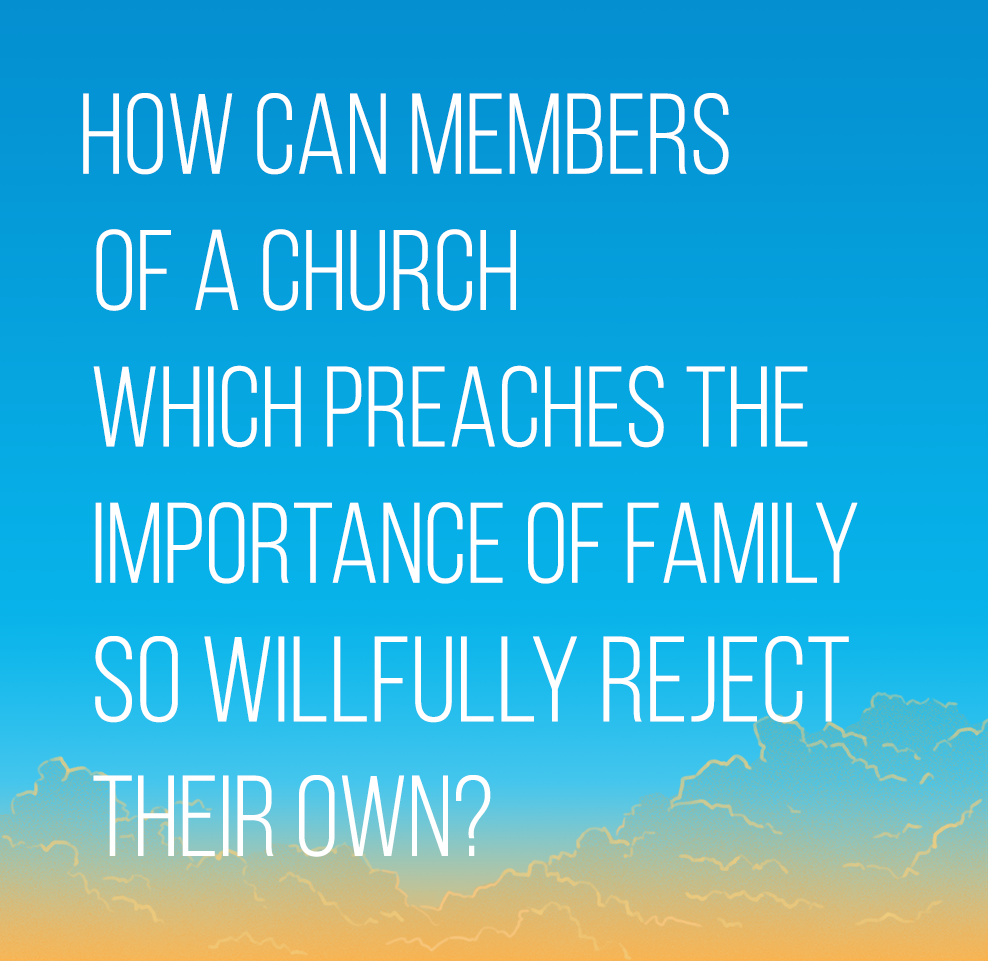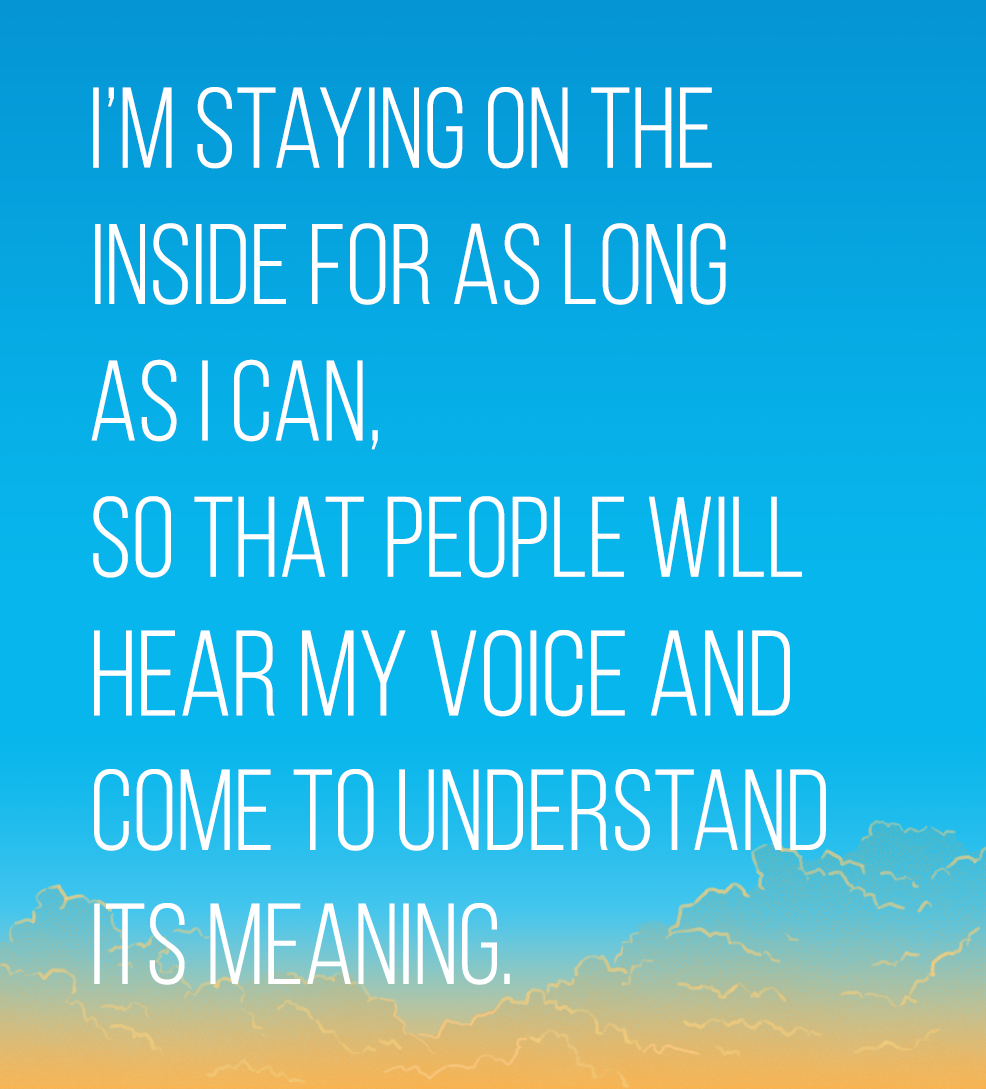
I realize this makes me sound like Ned Flanders but, as a ’90s Mormon kid, my hero wasn’t a cartoon character or a movie star; she was Biblical. I was 8 years old, preparing for my baptism. Mormons don’t believe in original sin, and 8 is considered “the age of accountability,” when children can discern right from wrong. My grandmother gave me a gorgeously illustrated book about Esther, the young queen of Persia who risked her life for the sake of her people.
Esther’s story goes like this: A conniving vizier had convinced the king, who was unaware his wife was Jewish, to exterminate all Jewish people in the kingdom. Esther could have stood by silently and protected herself as the order wiped out her people. Instead, at extreme personal risk, she took advantage of her position and outed herself as Jewish, pleading to the king that she and her people be spared. He immediately acquiesced.
The Book of Mormon encourages readers to “liken the scriptures unto yourselves,” and I’ve been considering how I could take inspiration from Esther in my position as a queer Mormon woman. Earlier this month, Mormon leadership declared those in same sex-marriages to be apostates, and therefore subject to excommunication. Handbook 1, a guide for lay leaders in the Church of Jesus Christ of Latter-day Saints, was updated to say that children in the primary custody of anyone in a same-sex relationship will be barred from serious participation in the church until they are 18, have moved out, and have disavowed their parents’ homosexuality.
This decision is not surprising, given the church’s longtime opposition to same-sex marriage. But it is hope-crushing. Given the number of congregations opening up to gay members and the growth of LGBT Mormon organizations — ranging from very, very private Facebook groups to the established, annual Affirmation conference — I believed that old prejudices would continue to be stripped away from my faith. This was a hard blow to my community. Being labeled an apostate is terrifying. It means you are against God and his teachings; it is a word reserved only for the most wicked and debased.

To me, it felt like homosexuality became a hot-button topic at church as soon as I started college at Brigham Young University in 2008. My Californian roommate dedicated many hours — as she was asked — to calling people and asking people to vote Yes on Prop 8, the ballot initiative to ban same-sex marriage in California. And I became a master at compartmentalizing. I was able to spend four years at BYU making strong friendships and gaining new insights about spirituality. Like all students, I had to abide by BYU’s Honor Code, which copies the church’s party line that while homosexual attractions are not sinful, acting on them is. So I repressed that part of myself, became friends with other girls who didn’t get asked out much, and graduated in high spirits.
When I started grad school a year later, things began to change for me. I had classmates who were openly queer and happy — something I had never witnessed at BYU. I also fell in love for the first time. I mean, all the clichés were in place: All the songs made sense, she made me giddy, I wanted to shout my love for her from every rooftop.
I’d been prepared to ride out my entire life hoping I would miraculously meet and fall in love with a man so I wouldn’t have to spend eternity dodging questions from Mormons about why I wasn’t married yet (because truly, God help you if you are an unmarried Mormon over the age of 22). But it’s one thing to not act on your attractions to someone who’s unattainable, like the celebrity you can fangirl over without drawing attention to yourself. It’s a whole other game when you fall in love with someone you speak to every day. And I was disgusted with myself for not being able to be honest about who I was, especially as queer Mormons braver than I were risking ties with family and friends to be true to themselves.

When I was home on winter break, a former church youth leader of mine took me out to lunch. She innocently asked me if I’d met any cute boys at school. I felt the familiar urge to lie or deflect, but, against all reason, I decided to be honest. I started to cry as I choked out words I knew I would never be able to take back.
“Actually, there’s a girl.”
She looked surprised for a moment, then reached across the table to take my hand.
“I love you,” she said. “I hope you know this does not change that at all.”
We talked, I cried some more, she hugged me. She asked ignorant questions, and I learned how to educate her. Since that day she has always been my supporter, learning how to be a better ally. My ability to come out to family and other friends is a direct result of her immediate, positive, loving reaction. I have been buoyed by family and friends in the church who want me to be happy in all facets. I’m still waiting for the courage to throw myself into that dating world, but when I learned the girl I loved did not reciprocate my feelings, friends and family urged me to date other women.
Embracing my queer identity while retaining connections with Mormonism — the faith of my ancestors and my upbringing — has made me feel whole. But for many, family and church leaders have made the reconciliation of these identities impossible. Regarding homosexuality, many Mormons claim to “love the sinner, hate the sin.” But compassion often turns to condemnation when a queer person decides the church’s expectation of celibacy is not an option for them.
About a decade ago, a transgender acquaintance of mine was 16 and kicked out of her home when her relatives couldn’t afford the reparative therapy a local leader suggested and they didn’t want to risk her “lifestyle” tainting their own. I know a boy who came out at 13 years old; his local leaders remained silent when congregants refused to take the sacrament (our version of communion) from him. A former roommate of mine told me her sister was married to a woman, and that while her family still loved this sister, her wife was not welcome in their homes or their conversation. How can members of a church which preaches the importance of family so willfully reject their own?

The wide range of LGBT experiences within the Mormon church is partly the result of local lay leaders interpreting teachings according to their own perspectives. My liberal, progressive father was succeeded in the bishop’s office by a tea partyer. When I came out to my devout dad last Thanksgiving, he paraphrased Spock’s mother in the first J.J. Abrams Star Trek reboot and told me that no matter what path my future took me down, I would always have a proud father. In the meantime, his successor firmly believes that because “the gays” have “marriage” equality, we can soon expect pushes for the legalization of pedophilia and bestiality.

Still, small progress has undeniably been made. Just being able to be out at church is a broad step from the 1970s, ‘80s, and ‘90s, when sexual orientation was still considered a choice and thus sinful. Today, there’s a church-approved website designed to educate members on the compassion necessary for their gay peers. Its rhetoric may not be ideal, but the site’s existence is an extraordinary leap for such a conservative organization. The supportive comments I received from people inside and outside of the church after I wrote a coming out post on Facebook gave me what Mormons like to call “a perfect brightness of hope.”
The hope I once felt is partly why the news of the latest policy has been so devastating. Holding children accountable for their parents’ actions goes against the major Mormon tenet that denounces original sin. And it reinforces the shortsighted notion that LGBTQ people are not already present in the church and do not want their children involved with it at all.
There are Mormons in same-sex relationships whose attendance has been validated and welcomed by open-minded local leaders – leaders whose hands might be tied by this new policy. There are children from amicably divorced mixed-orientation marriages (once encouraged by the church as a cure-all for homosexuality, now mostly renounced) — children whose gay parents are supportive of their participation in church, who hope their kids’ presence can help make those congregations a more inclusive place.
When I feel sad that people are leaving the church over this, it’s not because I’m worried for their salvation. What devastates me is that church bureaucracy has sent yet another message of “we don’t care about you.” For many of my queer Mormon friends, the new policy is understandably the last straw. They now believe that the only way to make an impact on the church is for people to remove their names (and tithing dollars) from its records. And I support them. People who need to get out must get out.
So why haven’t I joined the hundreds of others in resigning?

It is hard for me to resign because so much of my personality is inextricably linked with Mormonism. Growing up when and where I did, with the local leaders I was lucky to have, I was able to learn many profound life lessons through the lens of Mormonism. I learned altruism. I learned how to listen. I have seen more selfless acts of service, of charity, of kindness in my church than I have anywhere else.
I am lucky to be in a mental and emotional state where I can see the church’s rejection of same-sex couples and their children and assure myself, This is wrong. This is not what God wants. I remember the fallibility of men — even those who call themselves prophets — and know that their judgment on this issue is severely clouded by personal prejudice borne out of the eras in which they grew up. I am not an apostate. I am someone who has grown up truly loving my experiences in the church and everything it has given me, and people in my congregation know that.
I believe that puts me in a powerful position. I’m staying in the Mormon church for as long as I can, so that people will hear my voice and come to understand its meaning. Easy as it would be to label every member of the church as a homophobic barbarian, I know that is a limited perspective. And it would be easy for Mormons to imagine no queer person wants to stay involved with church, but again I know that is not true.
Writing this piece anonymously seems to go against my goals of following in Esther’s brave footsteps. But I worry attaching my name to this piece could — in the wrong hands — be used as a weapon by people I don’t know to oust me from the place where I need to be to keep doing Esther’s inclusive work.
And hard hearts can be softened. I have seen it happen. After the policy change became public, my old roommate (who rejected her sister’s lifestyle choice) sent me a private Facebook message to let me know she was thinking of me, and that she was reading everything she could about the experiences of gay Mormons to better understand what we were feeling. My mother, who once covered a magazine picture of Rosie O’Donnell kissing a woman so it wouldn’t taint my young eyes, marches as an ally in pride parades and has driven my congregation to donate regularly to a local homeless shelter for LGBTQ youth. To me, these are perfect demonstrations of charity — what we call the pure love of Christ.
People need to see the faces of those they are hurting; they need to see this policy affects more than those who already had one foot out the door. They need to understand that this is my church, too, and how dare they turn me away from the faith I have given so much for. I am often left weary and emotionally drained from struggling to be understood in those pews. But I’m young and new to the fight and not ready to stop.
